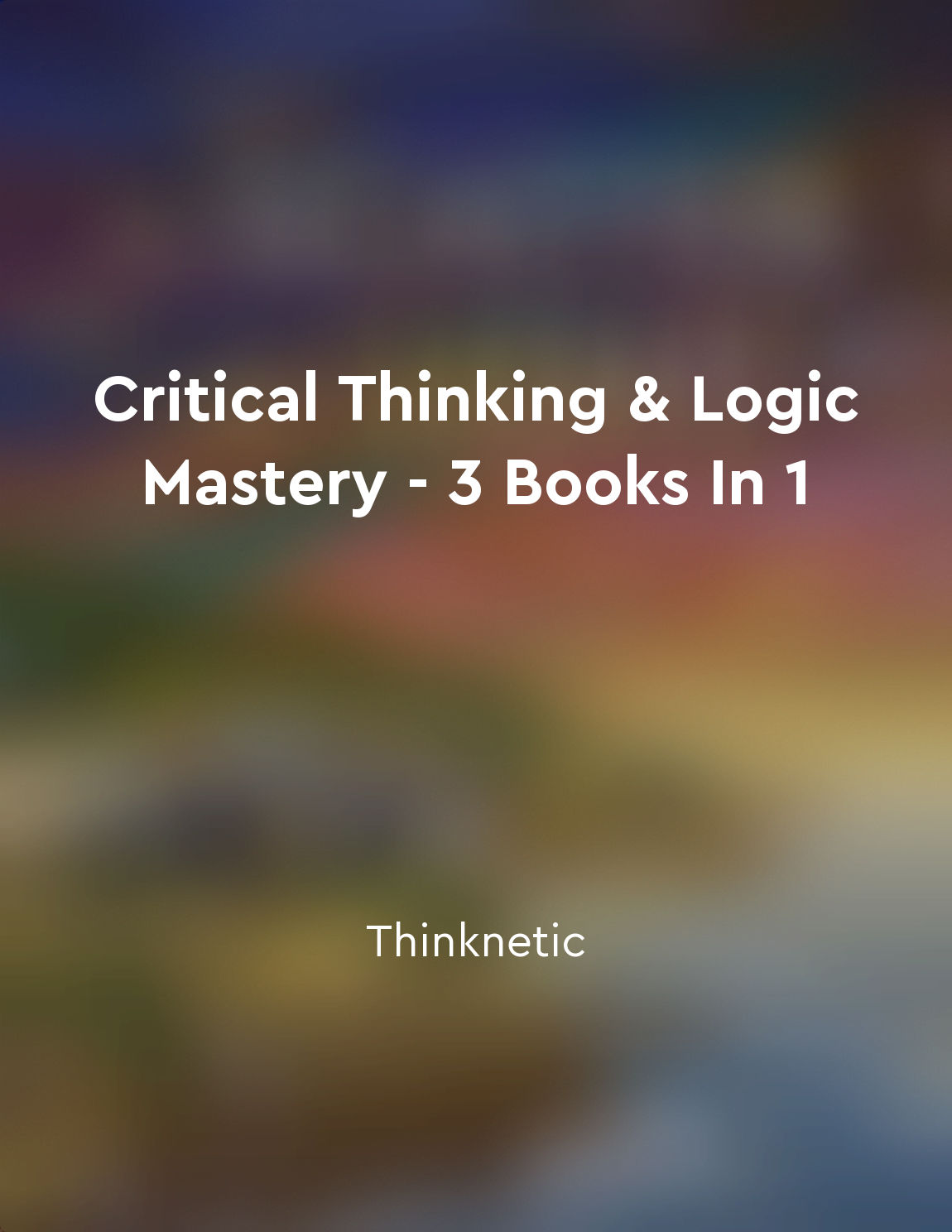Audio available in app
Recognizing assumptions can lead to deeper understanding from "summary" of Critical Thinking & Logic Mastery - 3 Books In 1 by Thinknetic
When we engage in critical thinking, we are constantly evaluating arguments and claims to determine their validity and soundness. One key aspect of this process is recognizing assumptions that underlie these arguments. Assumptions are the unspoken beliefs or ideas that serve as the foundation for an argument. By uncovering these assumptions, we can gain a deeper understanding of the reasoning behind the argument. Assumptions are often implicit and taken for granted, making them easy to overlook. However, they play a crucial role in shaping the logic and structure of an argument. By bringing these assumptions to the surface, we can evaluate their validity and assess how they impact the overall argument. This process allows us to see the argument from a new perspective and consider alternative viewpoints. Recognizing assumptions is essential for developing a well-rounded understanding of a topic or issue. By questioning the underlying beliefs of an argument, we can uncover biases, inconsistencies, and gaps in reasoning. This critical analysis enables us to engage more deeply with the material and consider different perspectives. Moreover, recognizing assumptions can help us avoid falling into the trap of accepting arguments at face value. By questioning the assumptions that underlie an argument, we can exercise our critical thinking skills and evaluate the argument more effectively. This process encourages us to think more critically and analytically, leading to a more nuanced and comprehensive understanding of the subject matter.- Recognizing assumptions is a fundamental aspect of critical thinking that can lead to deeper understanding. By uncovering the underlying beliefs of an argument, we can evaluate its soundness, identify biases, and consider alternative viewpoints. This process enhances our critical thinking skills and enables us to engage more deeply with the material. Ultimately, recognizing assumptions allows us to develop a more comprehensive and informed perspective on a given topic or issue.


